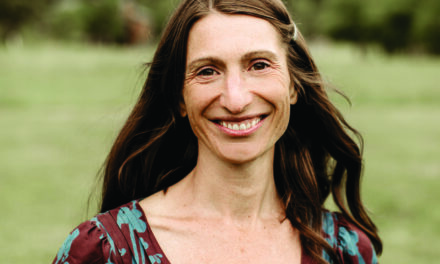It was raining that morning when I picked up Shannon for breakfast. She was dying from cancer at just 26, and I was determined to make every moment count.
Shannon and I had met working for the Forest Service years earlier. We’d stayed close through our shared love of dance—we’d even performed a duet together in undergrad. Now, with her terminal diagnosis hanging over us, I felt this urgent need to squeeze meaning from every conversation.
“I was going to be the friend who didn’t shy away from the hard stuff.”
I brought her bread, prayed for her, even brought my newborn twins to visit when she couldn’t come see me. I was going to be the friend who didn’t shy away from the hard stuff. The one who could handle talking about death and fear and all the things everyone else avoided.
So, that rainy morning at breakfast, I dove right in. “How are you feeling about everything? About the cancer?”
Her answer stopped me cold: “Please, Tara, can we not talk about this? I want to have a normal breakfast and talk about normal, everyday things.”
“Absolutely,” I said, but inside I was reeling.
We talked about the weather, her 6-year-old daughter, her belly dancing classes—anything but cancer. And while I smiled and nodded, I felt like I’d failed her completely.
Here’s the truth I couldn’t admit then: I was making her dying about my ego. About my need to be the friend who could “handle it.” The one who said the right things and provided the perfect support. When she asked for something different, it hurt my feelings—and that hurt? That was about ME, not her.
It was a brutal wake-up call about how often I make other people’s pain about my own need to fix, to help, to matter.
Fast-forward to today. My 41-year-old sister-in-law is battling stage IV breast cancer. She lives in Ohio, and I’m about to fly there to help her travel with her 2-year-old twins to our family trip—she can’t lift them after recent surgery.
She doesn’t like talking about her diagnosis. As much as I love diving into difficult topics, she prefers to dance around them. And you know what we spend hours talking about instead? Her kitten, Buggy.
Buggy showed up as a stray the day she was diagnosed—a tiny thing with infected eyes who wandered into her backyard. While test results rolled in day-after-day, revealing where her cancer had spread, my sister-in-law spent her time nursing this little creature back to health. For someone who’s never been good at letting others care for her, I think caring for Buggy became her way of feeling cared for herself.
And here’s what my breakfast with Shannon taught me: Those hours of Buggy conversations? They ARE the grief work. When my sister-in-law tells me about cleaning his infected eyes, about watching him grow stronger, about how he curls up on her chest when she naps—she’s telling me everything about her own healing journey. She’s just doing it wrapped in joy instead of fear.
I’ve learned to ask simple questions: “Do you feel like talking about it today, or would you rather talk about something else?” “How can I care for you right now?”
The person grieving should be the one to walk us through their loss—in their own way, in their own time. Sometimes that looks like deep conversations about mortality. Sometimes it looks like talking about a kitten for three hours straight. Both are sacred. Both are exactly what they need.
Shannon’s breakfast lesson changed everything for me: The most loving thing we can do is let the person in crisis be our teacher. Get curious instead of certain. Ask instead of assume. And when we miss the mark—because we will—apologize and keep trying.
We all crave connection in our grief. What a gift to let the other person show us what that connection looks like.

